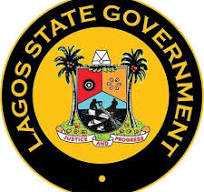Lagos State has once again demonstrated leadership in public health innovation as it gained international acclaim for its forward-thinking HIV financing strategy at the ongoing 2025 International AIDS Society (IAS) Conference on HIV Science in Kigali, Rwanda. The recognition was conferred during one of the conference’s key sessions, where Lagos presented a cutting-edge data-driven model designed to improve HIV funding efficiency and maximise the impact of available resources.
The IAS Conference, regarded as the most influential global gathering on HIV research and policy, brings together scientists, policymakers, advocates, and donors to evaluate the latest advancements in the global fight against HIV/AIDS. This year’s event, hosted in the Rwandan capital, has featured a wide range of presentations aimed at addressing persistent gaps in HIV care, particularly around the political and financial hurdles that hinder effective responses.
Representing Lagos State at the conference, the Chief Executive Officer of the Lagos State AIDS Control Agency (LSACA), Dr. Folakemi Animashaun, delivered a compelling presentation titled “Predictive Modelling for Optimising HIV Resource Allocation in Lagos State.” In her presentation, Dr. Animashaun revealed that Lagos has developed an innovative resource allocation framework that uses predictive modelling to guide HIV-related expenditure.
According to her, the model allows decision-makers to pinpoint funding priorities with precision, ensuring that every Naira invested in the HIV response delivers measurable impact. She emphasised that in a time of global economic uncertainty and donor fatigue, data-driven strategies are not just beneficial—they are essential.
“We are not operating on guesswork in Lagos. Every step we take is guided by verifiable data,” Dr. Animashaun said. “Our predictive model is designed to help the state strategically allocate resources, identify funding gaps, and track financial inflows with accuracy. This ensures our interventions are targeted, cost-effective, and capable of delivering sustainable results.”
She further highlighted that the approach is already transforming HIV programming in Lagos by improving coordination efforts, enhancing service delivery, and fostering stronger accountability in resource utilisation. According to LSACA, the model also supports the global UNAIDS 95-95-95 targets by prioritising funding to areas that will have the greatest impact on prevention, diagnosis, and treatment.
The recognition of Lagos State’s efforts at the IAS Conference signals a major milestone, not just for the state but for Nigeria’s overall HIV response. Public health stakeholders and international partners attending the Kigali conference noted that the Lagos model could serve as a replicable template for other states across Nigeria and potentially across Africa, especially those grappling with funding limitations and the need to do more with less.
The success of Lagos at the global stage reinforces the state government’s longstanding commitment to applying innovation and accountability in tackling public health challenges. Under the leadership of Governor Babajide Sanwo-Olu, the state has prioritised the integration of technology and data science into health system strengthening efforts.
As global attention continues to focus on sustainable financing for HIV care, Lagos’ approach—anchored on predictive analytics, strategic resource allocation, and measurable outcomes—offers a practical solution to funding challenges in sub-Saharan Africa. The spotlight from Kigali is not only a testament to the resilience of Lagos’ public health institutions but also a call to action for other sub-national governments to embrace data and innovation in closing the HIV treatment gap.
